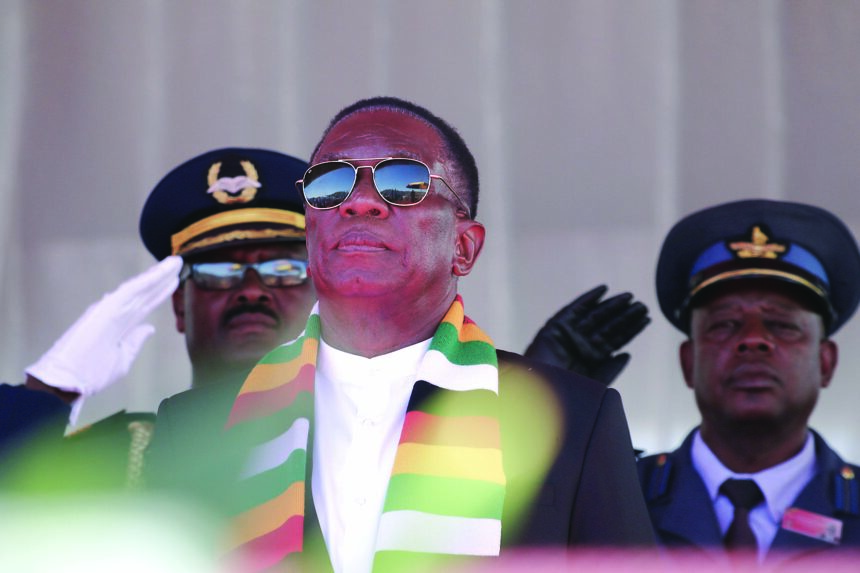Lahja Nashuuta
Zimbabwe’s ongoing political turmoil has been described by many observers as a classic case of “the chickens coming home to roost.” Political parties and analysts have suggested that the alliance between president Emmerson Mnangagwa and vice president Constantino Chiwenga was always a marriage of convenience, one forged to unseat the late Robert Mugabe.
Now, with Mnangagwa manoeuvring to extend his rule beyond the constitutional limit of two terms, tensions have resurfaced within the ruling Zanu-PF party.
His efforts have sparked internal protests and calls for him to step down. In recent weeks, Mnangagwa dismissed top security officers in what experts see as a pre-emptive move to avoid being ousted in a coup.
Mnangagwa’s current and final term is due to end in 2028, in line with Zimbabwe’s constitutional two-term presidential limit. However, signs indicate he may attempt to remain in power until at least 2030, prompting fears of a brewing political showdown.
Local views
Job Amupanda, leader of Affirmative Repositioning, likened the situation to chickens coming home to roost.
“The unquenchable thirst for power brought an alliance of the unprincipled together to topple Mugabe. The crocodile and the cheetah were put on the same team to face the springboks. Now the lion wants to eat because the cheetah had his turn. This is the germination of a seed that was planted,” he said.
Amupanda further warned that Zimbabwe’s vicious political culture is deeply entrenched and won’t change quickly.
“Mnangagwa has already begun removing Chiwenga’s allies, reshuffling the army and firing selected Cabinet ministers. Chiwenga appears weakened, and Mnangagwa is known for his shrewdness. But we must be cautious in Zimbabwe, things are not always as they seem. Stage-managing is part of Zanu-PF’s DNA,” he added.
Kalomoh
Echoing similar concerns, politician and diplomat, ambassador Tuliameni Kalomoh said if the alleged power struggle between Mnangagwa and Chiwenga is confirmed, it spells trouble not only for Zimbabwe but also for the SADC region. “It perpetuates instability and may entrench a culture of regime change through coups,” he said.
Kalomoh emphasised that disputed election results inevitably lead to political instability, an issue that has plagued Zimbabwe’s past elections.
“SADC should expect Zimbabwe’s leaders to resolve any internal disputes through dialogue. All parties must strictly adhere to the constitution and the rule of law,” he added.
Kalomoh maintained that political crisis will deepen economic crisis and insecurity which will drive more Zimbabweans to flee their country, worsening the humanitarian burden on neighbouring countries.
Kamwanyah
Political analyst Ndumba Kamwanyah argued that while Chiwenga, as vice president, holds significant influence, he is widely perceived as a rival to Mnangagwa. “A ‘soft coup’ is possible if Chiwenga or other military figures attempt to reclaim power, although such a scenario may not unfold immediately,” Kamwanyah said.
He stressed, however, that even a change in leadership wouldn’t necessarily translate to democratic progress. “Mnangagwa’s rise to power has not ushered in genuine democracy, and a soft coup wouldn’t either. The real problem lies within Zanu-PF. Both Mnangagwa and Chiwenga are products of the same political system.
As long as they remain in power, Zimbabwe will not experience a true new dawn in governance, economic growth, or democracy,” he concluded.
Kamwanyah also noted that SADC could face increased pressure to mediate between factions in Zimbabwe, though efforts at reform may be hampered by regional politics and internal complexities.
Katjimune
Maximaliant Katjimune, former Member of Parliament and secretary for legal affairs of the Popular Democratic Movement expressed deep concern about the implications for Southern Africa.
“What happens in Zimbabwe often leads to a humanitarian crisis that affects the entire SADC region,” he said.
Katjimune warned that the potential for a soft coup remains high. “Factions within Zanu-PF are at each other’s throats, competing for control over state and party power. SADC must closely monitor the situation and strongly urge Zimbabwean leaders to resolve their differences through dialogue not force,” he emphasised.
Photo: Heather Erdmann



